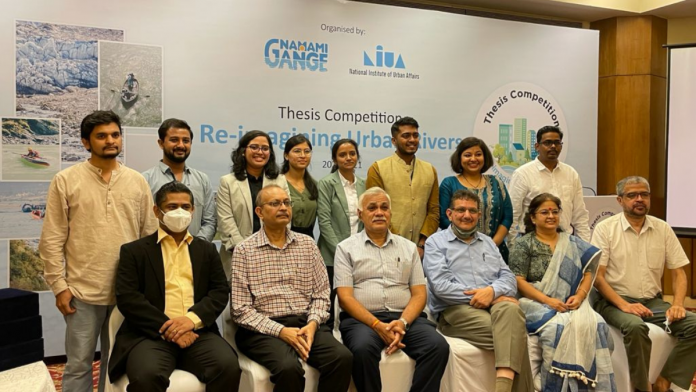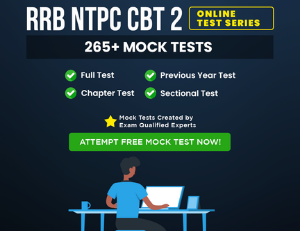Hello Readers!
Recently, Namami Gange in association with NIUA announced winners of ‘Re-Imagining Urban Rivers’, a national-level thesis competition. We will discuss in detail about this competition, its aim and other key facts further in the blog. Read our blog to know all about this national level competition.
About the competition
National Mission for Clean Ganga (NMCG) and the National Institute for Urban Affairs (NIUA) had organised ‘Re-Imagining Urban Rivers’, a national level thesis competition in September 2020.
It is a joint project being implemented by the two organisations to promote river-sensitive development in our cities This is the first initiative of its kind to engage young minds in researching and imagining solutions to urban river issues.
Aim
The goal of this sponsored thesis competition is to tap into students’ intellect and creativity to find innovative solutions for reimagining the outlook and management of rivers that flow through cities and their associated features.
This competition gives students with relevant academic backgrounds the opportunity to align their academic thesis research with the competition themes.
Themes
The competition had three themes:
- Reimagining water bodies and/or wetlands – This theme will concentrate on creating a value for a water body/wetland in order to make it more appealing to city residents. This could be recreational value, social value, economic value, aesthetic value, and so on, or a combination of all of them.
- Developing eco-friendly riverfront projects – Riverfront projects improve the river’s aesthetic and economic value. It acts as a medium for bringing the rivers to the forefront. It is also a significant source of recreational opportunities. As a result, riverfronts become a wonderful tool for connecting citizens to the river, which is lacking in many cities today.
- Promoting river tourism – River tourism has made a significant contribution to the city’s economy in many parts of the world. It supports the livelihoods of various segments of society and thus contributes to overall development. River tourism potential in Indian cities is largely untapped.
Students from leading institutes across the country presented their thesis at the competition’s grand finale on August 19, 2021, at the Indian Habitat Centre in New Delhi.
Winners
The first prize went to Manju Rajeev Kanchan, School of Planning and Architecture, Vijayawada for “The somber case of an odd triad – Dolphin, Man and Zoonoses”.
Deepanshi Singh, School of Planning and Architecture, Delhi, won second prize for her thesis on “Revitalizing SultanGanj Ghat”
The third prize went to Rajorshi Banerjee, Sushant University for “Reconnecting the city to its riverfront – A case of Kolkata”. Students from more than 17 architecture and planning institutes in India participated in the competition.
Launch of 2nd Edition
The second edition of the Sponsored Thesis Project Competition was also launched at the event.
The themes for this year are :
Reducing River Pollution, Rejuvenating Water Bodies, Creating a Vibrant River Zone, Generating River-Related Economy and Engaging Citizens in River Management Activities.
The last date for submission will be 26th September 2021.
Namami Gange
The Namami Gange Programme is an Integrated Conservation Mission that was designated as a “Flagship Program” by the Union Government in June 2014 to achieve the twin goals of effective pollution abatement and conservation and rejuvenation of the National River Ganga.
It has been collaborating with academic institutes to gain new ideas and perspectives on river revitalization.”
National Institute of Urban Affairs (NIUA)
The National Institute of Urban Affairs (NIUA) is India’s leading national urban planning and development think tank.
As a hub for the generation and dissemination of cutting-edge urban research, NIUA seeks to provide innovative solutions to the challenges of a rapidly urbanising India, paving the way for more inclusive and sustainable cities of the future.
National Mission for Clean Ganga (NMCG)
The National Council for Rejuvenation, Protection, and Management of River Ganga, also known as the National Ganga Council, implemented the National Mission for Clean Ganga (NMCG). This mission was established as a registered society on August 12, 2011 under the Societies Registration Act,1860.
The NMCG focuses on pollution reduction interventions such as intercepting, diverting, and treating wastewater that flows through open drains.
Its goal is to reduce pollution through bioremediation, appropriate in-situ treatment, cutting-edge technology, sewage treatment plants (STP), and effluent treatment plants (ETP).
With this we come to the end of this blog. Hope it was an interesting read for you all!
Keep reading hranker.com for more such blogs.




